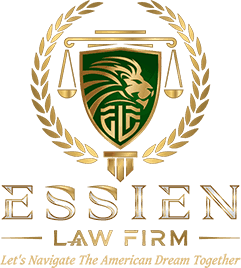The Violence Against Women Act (VAWA) was first introduced in the United States in 1994 in response to the increasing awareness of domestic violence issues. This landmark legislation provided legal protections and support services for victims of domestic violence, sexual assault, and stalking.
Recognizing that immigrant women were particularly vulnerable to abuse and often faced barriers in accessing help, Congress included special provisions for immigrants in VAWA. These provisions, known as VAWA immigration, allow certain abused noncitizens to self-petition for lawful status in the U.S. without relying on their abuser to sponsor them.
Since its inception, VAWA immigration has undergone several reauthorizations and amendments, each expanding its scope and strengthening protections for immigrant victims. Today, VAWA immigration is a crucial lifeline for many immigrants in Phoenix, AZ, and across the country, providing them with a path to escape abuse and build a safer, more stable life in the U.S.
If you believe you may be eligible or have questions about the process, we encourage you to contact Essien Law Firm at (602) 833-2650 or online.
The Legal Framework: VAWA Immigration Provisions
VAWA immigration operates under a specific legal framework in the Immigration and Nationality Act (INA). Eligible immigrants can file a self-petition for lawful status independently of their abuser. This approach significantly differs from the usual family-based immigration process, where a U.S. citizen or lawful permanent resident (LPR) must sponsor the immigrant. The VAWA provisions effectively remove the power and control that abusers often wield over their victims' immigration status.
Who Qualifies for VAWA Immigration Benefits
VAWA immigration is available to specific categories of immigrants subjected to battery or extreme cruelty by a U.S. citizen or legal permanent resident family member.
Those eligible for self-petition include:
- Spouses and former spouses of abusive U.S. citizens or LPRs
- Children (under 21 and unmarried) of abusive U.S. citizens or LPRs
- Parents of abusive U.S. citizen children (at least 21 years of age)
VAWA immigration is gender-neutral. Although the name of the Act refers to women, its protections also extend to men. Regardless of gender, any immigrant who meets the eligibility criteria can apply for VAWA immigration.
Other Essential Requirements for VAWA Immigration
Aside from falling into one of the eligible categories, VAWA self-petitioners must meet several other requirements. These include demonstrating that they lived with the abuser at some point, that they were subjected to battery or extreme cruelty by the abuser, and that they entered into the relationship with the abuser in good faith. They must also prove that they are of good moral character. This requirement can be particularly challenging for some applicants.
Documenting Evidence of Eligibility and Abuse
Documenting abuse is a delicate yet necessary step in the process. It validates the victim's experience and strengthens their case for immigration status. This evidence may include police reports, medical records, restraining orders, or any other pertinent documentation that sheds light on the abuse suffered.
For spouses seeking VAWA immigration benefits, providing documentation that they entered the marriage in good faith is crucial. This documentation serves as tangible evidence of the authenticity of the marital relationship, reinforcing the legitimacy of the self-petition.
The VAWA Application Process
For victims seeking refuge through the Violence Against Women Act immigration process, understanding the step-by-step procedure is crucial. The initiation begins with submitting Form I-360, the VAWA self-petition form. This form serves as the cornerstone of the application process, allowing victims to independently petition for immigration status without relying on an abusive family member.
Beyond Form I-360, the VAWA application process requires meticulous attention to detail, supporting documents, and submission procedures. This paperwork includes evidence validating their eligibility, such as police reports, medical records, or other documentation establishing the authenticity of the abusive relationship.
Protection and Privileges Offered Under VAWA
The benefits of VAWA immigration extend far beyond legal status, offering a lifeline to those trapped in abusive relationships. At the core of these advantages is the ability to self-petition. This monumental shift allows victims to break free from the shackles of dependency on an abusive family member.
VAWA beneficiaries may be eligible for certain federal and state benefits. This support system acknowledges victims' challenges and aims to provide the necessary resources for rebuilding their lives.
Upon approval of Form I-360, applicants gain the right to apply for work authorization in the United States. This benefit empowers them to secure employment, foster financial independence, and further their journey towards a stable and secure future.
How VAWA Affects the Path to Permanent Residency
A pivotal outcome of VAWA status is the potential eligibility to apply for a Green Card. Once Form I-360 is approved, applicants can initiate the process of securing permanent residency.
Addressing Common Hurdles Faced During the Process
Embarking on the VAWA immigration process is a courageous step towards a brighter future, but it has challenges.
Some of the difficulties individuals may encounter include:
- Fear and intimidation: Victims of domestic abuse often face the daunting challenge of fear and intimidation. The power dynamics in an abusive relationship can deter individuals from taking the necessary steps toward self-petitioning. Overcoming this hurdle involves creating a supportive environment where victims feel empowered to seek help.
- Lack of documentation: Many applicants encounter obstacles related to the lack of comprehensive documentation. Proving eligibility and substantiating claims of abuse require careful documentation. Navigating this challenge involves seeking professional assistance to compile a robust case supported by evidence such as police reports, medical records, or affidavits.
- Navigating the legal system: The intricacies of the legal system can be overwhelming for applicants. Understanding the complex requirements of Form I-360 and other documentation is essential. Getting guidance from experienced professionals facilitates a smoother navigation through the legal landscape.
The Importance of Seeking Legal Counsel for VAWA Immigration Cases
Navigating the complexities of VAWA immigration cases is challenging and laden with sensitive issues and legal intricacies. Victims of domestic abuse embarking on the path to self-petitioning and securing immigration status need the guidance of experienced attorneys to navigate these emotionally charged situations.
VAWA immigration cases involve deeply personal and sensitive matters. Legal professionals who practice immigration law and have a nuanced understanding of the complexities surrounding domestic abuse can provide the sensitivity and insight to handle these cases effectively.
The legal landscape can overwhelm applicants with its myriad forms, documentation requirements, and procedural nuances. Legal counsel offers clarity for addressing every aspect of the case.
If you or someone you know is navigating the complexities of a VAWA immigration case in Phoenix, Essien Law Firm can provide compassionate support and guidance. Contact us at (602) 833-2650.

